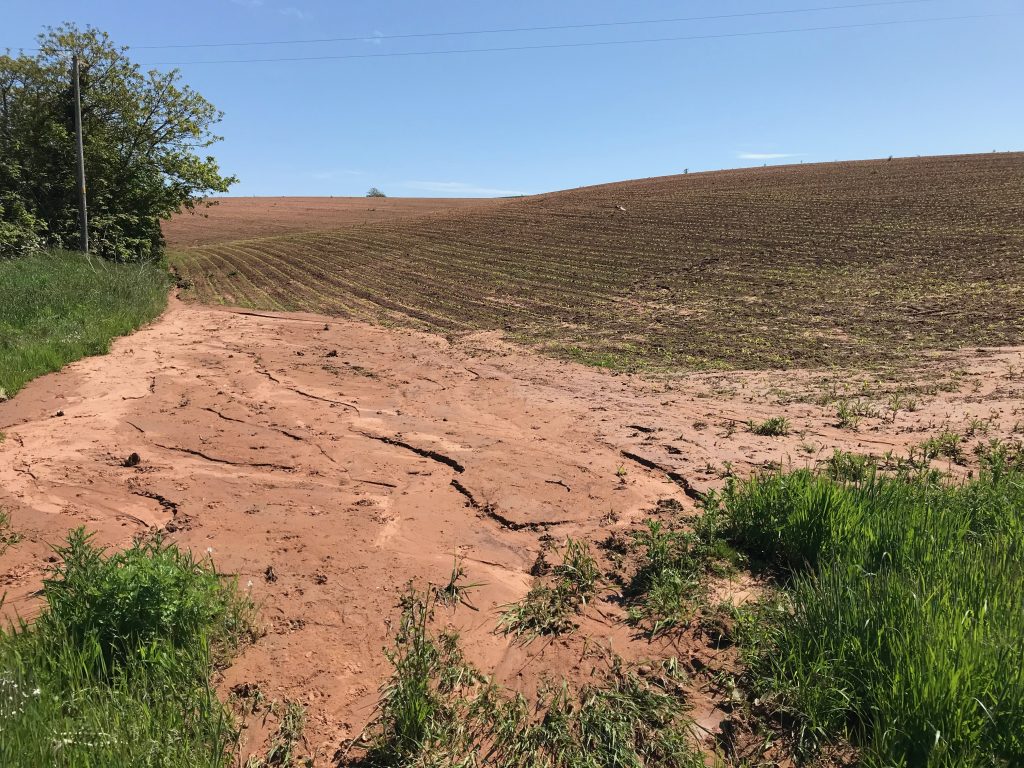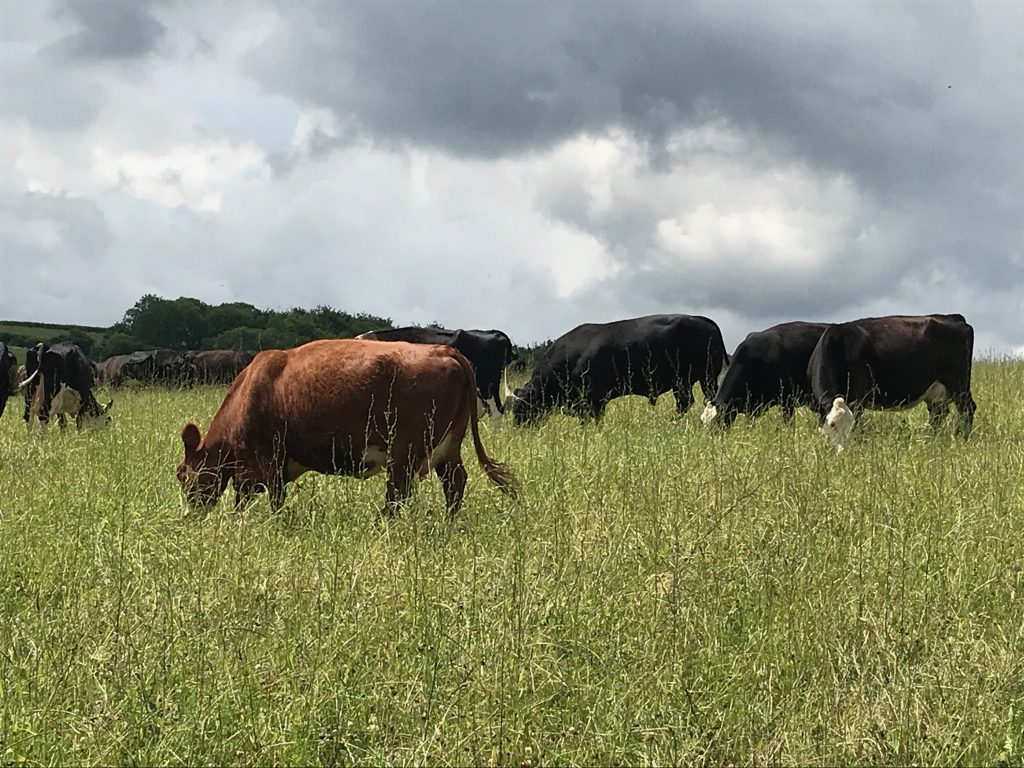
TB consultation response
Whilst diligently responding to the government’s TB consultation in March, I clearly recall agreeing to the proposals relating to tightening cattle movement and testing regulations, IF and only IF, we could retain the ability to operate culls where TB is still clearly present in the wildlife, and until such time as the science indicates that culling is no longer necessary. I also recall pointing out that we would need to continue to cull until at least such time as a good cattle TB vaccine is available.
What a fool. The government’s recent response to the consultation is to take the cowardly route. They have come to an entirely political decision to end all culling by 2023, because of a very small number of people in very influential positions. Those involved in the cull campaigns across the high risk area over the last 10 years have thrown huge energy and resources into bringing TB under control, through culling, and bringing farmers up to speed on biosecurity. They are now feeling utterly betrayed. What happened to the 25 year TB eradication policy that the brave governments from 2010 to 2019 enabled? Our oh so bold government in 2021, having proudly driven us out of Europe, find they don’t have the balls to finish a job started eight or more years ago by their predecessors. What a spectacular let down. There will be no more culling from 2023, but no prospect of a cattle vaccine by then.
And what of badger vaccination? DEFRA’s TB Hub website contains detailed instructions and costings for how to set up a badger vaccination project, and it quotes the experience of other countries, most likely Ireland, but Defra cherry-picks only the parts of the Irish experience that suit them, failing to recognise essential elements of that policy.
The big question is, no matter what we might individually think of badger vaccination, should our industry be engaging with the idea ? And if so, are the cull companies the right body for this? That could be tricky, seeing as the focus of their role to date has been wildlife control, which there is no denying, has resulted in a spectacular reduction in TB levels in cattle across all cull areas. Much of the evidence is anecdotal, but arguably more reliable than the simple report of numbers of closed herds, as seen on the IBTB website. Very often, even if herds are suffering breakdowns, the numbers of reactors are hugely reduced compared to before the cull, just one or two inconclusives and the odd reactor per test, whereas previously dozens of animals could fail at one test on one farm, because of constant re-infection from wildlife.
After such success, we need to continue to use every available tool to hold on to that advantage. If badger vaccination is going to be all that is on offer, should we be giving it our best shot?
Who writes the rules?
The Farming Rules for Water are causing trouble. The Environment Agency has been picking off individual farmers for breaking the rules relating to spreading of manures in the autumn. The rules are designed to prevent excessive leaching of nutrients from farmland into water over winter, which is clearly essential to control. Oilseed rape is the only crop deemed eligible to apply organic manure to before winter. The implication from this is that much more manure will need to be stored through winter than previously, to be spread in the spring. In my experience, spring muck spreading can do far more damage to soils which have not dried out sufficiently, resulting in deeper cultivations being required to correct the damage. Deeper cultivation leads to more soil degradation, especially in a wet spring, and is sure to be more climatically damaging. Autumn applications to dry soils can be speedy and incorporated easily, and heavy spreading machinery can be supported much more safely by dry soils. Isn’t the least worst option to spread in autumn and grow a good cover crop on top of it?
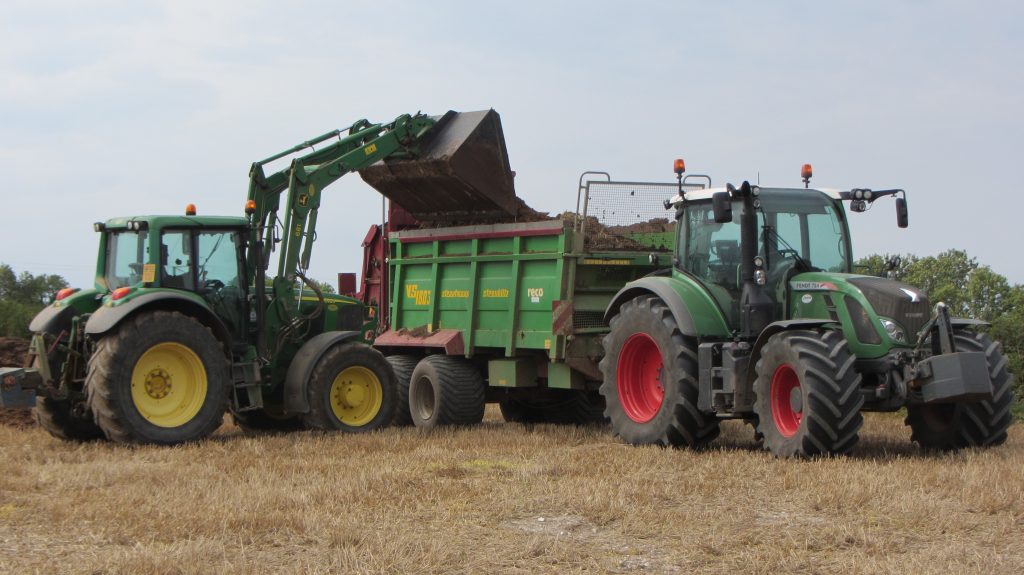
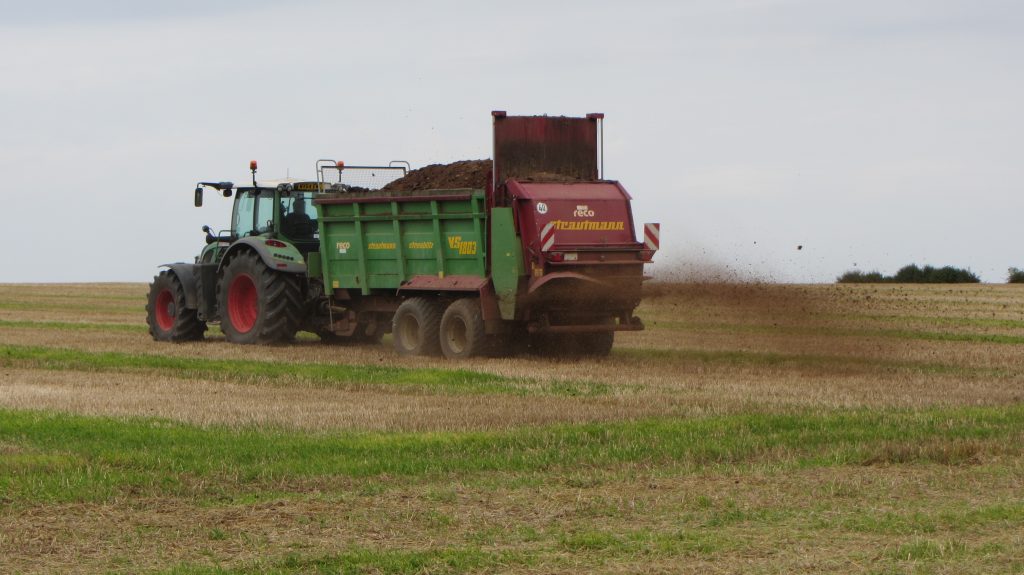
In our own arable situation, we are trying to learn how to grow good cover crops, which we sow after wheat. In spring we will terminate the cover and sow spring crops, often spreading manure before sowing, but waiting for the soil to dry out enough to carry spreaders means that sowing is not always as timely as it should be. In order to grow bigger and better cover crops, a dose of manure before sowing in late summer could help, a bigger cover crop will capture much of the nutrient in the manure, and more from the soil, and will capture more CO2 from the atmosphere than a puny unfertilised cover. How do we persuade the EA to engage with this debate in a reasonable fashion, rather than simply quoting RB209 at us, and prosecuting? (RB209 is DEFRA’s fertiliser and manure bible). New ideas and techniques are coming along all the time, and the regulatory authorities need to be more fleet of foot to assess them properly.
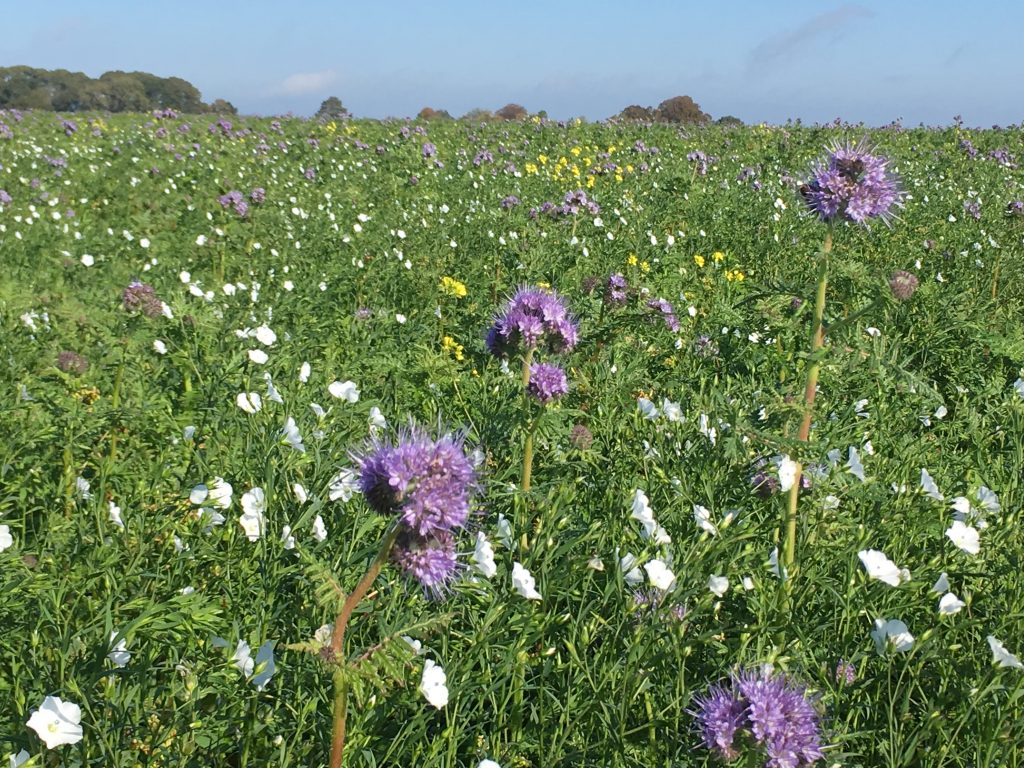
Maize sown on unstable sloping soils can have undesirable effects in a wet May. (picture not taken in Dorset!)
